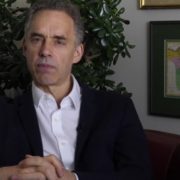Self-Improvement Empowers And Inspires The Individual.
Everyone has that one friend who appears to be obsessed with self-improvement. In addition to posting inspirational Tony Robbins or Ram Dass quotes to Facebook on a regular basis, they might also routinely preach to you about the health benefits of putting butter in your coffee, or insist that daily meditation has “changed their entire life.” And in between running their startup and going to CrossFit, they never miss an episode of podcasts like the Tim Ferriss Show, The Joe Rogan Experience, or former NFL player Lewis Howes’ The School of Greatness.
And if your “woke” friend is anything like me, who is admittedly guilty of committing every action mentioned above, these podcasts themselves have actually been the catalyst for a lifestyle change centered around self-optimization. In fact, these podcasters have been making such a dramatic impact on American culture, it’s caused a few journalists to scratch their heads in wonder as they try to figure out why it is that suddenly all the young people are obsessed with self-improvement.
One article for the Spectator dismissed this growing trend of personal development as self-involved and narcissistic, while another article for the New York Times dubbed these hosts “podcast bros.” And while it is all too easy to poke fun at groups we do not fully understand, these podcasters and the rising self-improvement movement are offering people something that modern institutions are not: control over their own lives.
Self-Improvement Empowers the Individual
Over the last several years as identity politics have gotten out of hand, everyone seems to have grown fond of blaming the “other side” for their problems. But blaming others can only get you so far. Eventually, you get so obsessed with finding a scapegoat you forget how much control you have over your own life. And this is precisely why self-improvement has become so popular. It offers an alternative to the powerlessness perpetuated by the ever-present victimhood narrative. And it also empowers people to change what they are actually capable of changing, without having to wait on anyone else.
Explaining why so many people are flocking to the self-improvement movement in droves, entrepreneur TK Coleman commented:
“They’re weary of messages that constantly reinforce a philosophy of powerlessness. They’re weary of being told that the only way to change the world is to cast a vote for someone else or to place your faith in someone else. People want to know that they have the power to make a difference on an individual level and these ‘podcast bros’ speak to that.”
More and more, people are becoming disenchanted with the political process. Instead of casting a vote and engaging in groupthink, all in an attempt to change a corrupt system from within, these podcasters and their listeners are opting out of this system altogether. Rather than placing their faith in a politician in the hopes that he or she can fix things, these self-improvement “gurus” are first fixing themselves before trying to tackle a task as grandiose as changing the entire system. And through this personal improvement, there is real, lasting power.
Coleman continues:
“This is the sign of people returning to the root of their power: individualism and personal development. And I think it’s sad that we treat self-help advice like ‘make your bed’ or ‘stop drinking so much darn soda’ as if it’s a potential distraction from structural issues when it’s really the very starting point for being effective in dealings with social issues.”
And Coleman is exactly right. While many people scoff at those who insist that small changes, like incorporating a daily routine into your schedule, lead to bigger results, everyone has to start somewhere. No thoughtful parent would put their three-year-old on a bicycle and expect them to master it right away. Instead, we start small by teaching children how to first conquer a bike with training wheels. And after this skill has been mastered, they move on to bigger challenges, like a two-wheeler. Conquering these small tasks is what gives us the confidence we need to take on bigger challenges.
When it comes to improvement on any scale, we must have a starting point. If we bite off more than we can chew at the get-go, we set ourselves up for failure. But these podcasters offer us a map to improvement by showing us where to begin.
It is no surprise that the rise of self-improvement podcasters has also coincided with the rise of the Intellectual Dark Web (IDW) which provides an academic alternative to colleges and universities that are now more obsessed with political correctness than the actual dissemination of knowledge. In fact, psychologist Jordan Peterson, who is a pivotal figure of the IDW and a frequent guest on Rogan’s podcast, became popular by giving his followers a starting point for change. Instead of telling his listeners to go out and vote to enact change, he encourages them to make small changes in their lives before trying to take on the world.
He frequently tells his audience to “stand up straight with their shoulders back” and suggests that they clean up their rooms before trying to clean up the political system and change the world. And while this advice has empowered countless people to change their lives for the better, it is often criticized and dismissed as being too simple and ignoring they very real systemic injustices that need correcting.
Speaking specifically of the “podcast bros,” New York Times contributor Molly Worthen expressed her skepticism in regards to the impact self-help can really have on the world, since it disregards the very real limitations that many individuals face.
She writes:
“…their gospel of health, wealth and contentment comes with the usual moral hazards: Too much faith in self-improvement glosses over structural injustices that place real limits on what’s possible for many people.”
To be sure, systemic injustices exist, but they are not impossible to overcome. And if we throw our hands up in the air and confine ourselves to the victim mentality, we do nothing but belittle our own inner power.
So instead of dwelling on all the obstacles standing in our way, these podcasts present real-world examples of individuals taking control of their lives and overcoming adversity. And by hearing examples of others doing the impossible, we are encouraged to emulate this behavior and strive for greatness on our own end. Therein lies the true power and beauty of these podcasts: people are actually inspired to take action.
Personal Stories Inspire Others to Change
From an outsider’s perspective, these podcasters appear to have it all. Each host is easy on the eyes, physically fit, and raking in millions of dollars each year. But if your first thought is to assume that this type of success makes them out of touch with their listeners, then you would be gravely mistaken. Instead, the success of each podcaster makes their influence that much more powerful because of the obstacles they had to overcome first.
Tim Ferriss has not been shy about discussing his personal journey with his audience. Sure, he might be a bestselling author and a brilliant investor, but it hasn’t always been that way. Ferriss himself was suicidal at one point and was on the verge of ending it all. It was this experience with mental illness that led him to take personal control of his own life. Once he began incorporating small changes into his daily life, his situation improved ultimately leading to his present-day success. Of course, that didn’t mean his life was smooth sailing from that point on. But by incorporating small changes into his daily life, he was better able to handle failure and the other challenges life threw at him. But Ferriss himself is just one example.
One of the defining characteristics of each of these podcasts is the primary focus of using personal stories to inspire listeners. In every episode, the host interviews someone who has achieved conventional levels of success in spite of the hand life dealt them. And underneath their rosy exterior, each individual guest has a personal story of hardship, pain, and failure that resonates with listeners who may be experiencing hard times.
And it is through this storytelling that others are inspired to take action. Humans are hardwired to learn by way of example. It is the reason we love fiction and stories of mythical characters overcoming hardships and conquering their enemies. We like to know that victory is possible before we go out and try it ourselves. When we see other people beating the odds and achieving success, we are inspired to follow in their footsteps and do the same.
However, while a story like Ferriss’ has inspired many people who are struggling, some, like Worthen, downplay its significance simply because he is a white “privileged” male with no real problems.
Worthen writes:
“If you live in a safe society with plenty of money, and you need something bigger than you to engage with, the shrine of the body and the temple of the mind, then go for it — you’ve got nothing else to do.”
Responding to Worthen’s allegations, Coleman said:
“As a black man who grew up in a black Pentecostal church, my understanding of self-help and motivation has always been that it’s something born out of the experience of real suffering. I didn’t learn self-help from ‘a bunch of white dudes’ who told me to drink kale smoothies. I was inspired by the stories of Frederick Douglass and Malcolm X. As a teenager, I was motivated through my trials by the likes of Myles Munroe, Les Brown, and Dennis Kimbro. I know that those guys are old school, but can I at least get a mention of Eric Thomas or Ed Latimore? I talk to black people all the time who are very passionate about these same kinds of messages and it’s not because they have too much time and money on their hands. It’s because they feel marginalized and ignored.”
But self-betterment restores control to the individual and gives each person the tools they need to succeed in spite of oppression or marginalization.
The message of these self-help gurus is simple: if this person can do the impossible and succeed, then you can too. And this is a message that is largely missing from our society today. We focus too much on what we can’t do, ignoring how much we really can do to improve our own lives. And this is why our society needs these podcasters so badly now more than ever.
Coleman continued:
“We’ve had enough of people trying to create systems that affect everyone when they don’t even know how to exercise self-control over their own impulses. We’ve had enough of people trying to define the rules for everyone else when their own individual lives are a total mess. Self-help is not a flight from the real battle. It’s the front lines of the real battle.”







